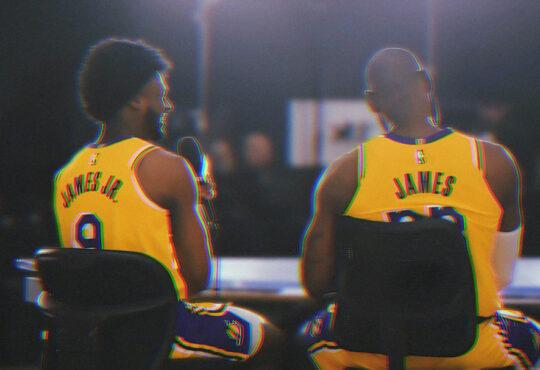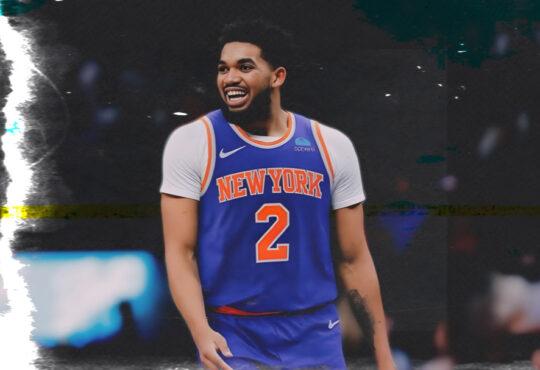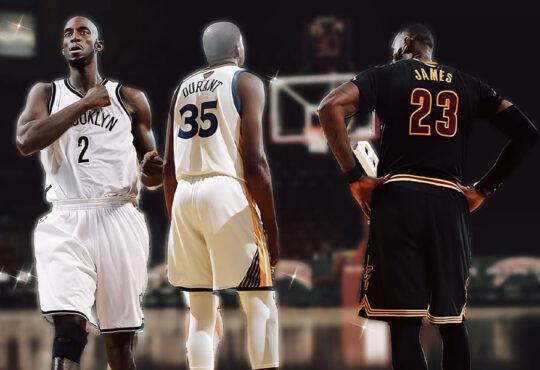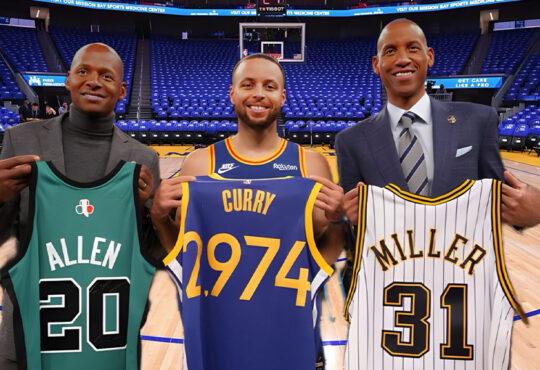
Did Master P play in the NBA?
Rap music and basketball have been connected for decades. Many say that every basketball player wants to be a rapper and every rapper wants to be a baller.
Long before Jay-Z owned the Brooklyn Nets or Drake sat courtside at Toronto Raptors games, Master P traded his microphone for a basketball and briefly pursued an NBA career in the late 1990s.
By the fall of 1998, Master P had already released seven studio albums and acted in several films being a superstar in what he does. But the Louisiana-born rapper had another dream involving a career on the basketball court.
Born Percy Miller, Master P began playing basketball at a very early age in his native New Orleans and as he says, the game has put him in the right direction.
“Basketball saved my life,” says. “It took me on the road, gave me a bigger vision.”
P started playing ball at 5 years old in New Orleans’ Calliope Projects, the violent neighborhood now known as the B.W. Cooper Apartments.
“Basketball is how I escaped a lot of negativity,” P says today.
P’s high school career began at Booker T. Washington, then a regional powerhouse. He fought a lot, he says, and transferred to Warren Easton, where he averaged 18 points, 9 assists, 5 rebounds, and 3 steals during his senior season.
Afterward, he attended the University of Houston. It is unclear whether he received a full basketball scholarship to the school or if he made the team as a walk-on, but he left the team and the school after tearing his ACL before the season began.
That was the time when P found a new hustle. As the legend goes, he started rapping, opened a small record store called No Limit Record Shop in Oakland, stocked the shelves with his own music, started a record company named No Limit, and sold CDs out the trunk of his car.
Soon after, the operation became so massive that he signed a record-pressing and distribution deal with Priority Records.
Throughout the ’90s, P and No Limit mutated from regional phenomenon to national juggernaut—by early 1998, the label had sold over $120 million in records.
At the same time, P wanted to give basketball one more shot.
Sometime in the fall of 1998, Tim Redo, a No-Limit employee, called Keith Smart, a friend of his from Baton Rouge. Smart was the head coach of the CBA’s Fort Wayne Fury, a forerunner to the NBA’s Developmental League.
Redo asked if his boss, Master P, could try out for the Fury. With training camp on the horizon, Smart agreed to take a look.
“We thought it would be exciting for the Fort Wayne community,” Smart says. “Master P and his group met up with ownership and they all thought it would be a pretty unique situation.”
As a backup guard for the Fury, P earned $1,000 a week in addition to $15 per diem on road trips.
In eight games for a talented Fury team that included future 9-year NBA veteran Moochie Norris, P had more personal fouls (24) than points (15).
In Jan. 1999, with the NBA lockout settled, P asked Andrew Curtin, an agent with No Limit Sports, P’s sports agency that represented Ron Mercer, Derek Anderson, and Ricky Davis, to petition NBA teams for a tryout.
Curtis heard from Don Nelson, head coach, and general manager of the Dallas Mavericks. Soon P, Curtin, and a 10-man entourage were in Dallas.
A Friday morning meeting with Nelson went well. P was then chaperoned around the team’s facilities by Steve Nash, his old NorCal running mate, and worked out with the team.
When he returned to the hotel, Curtin says that P told him that the next practice was scheduled for Monday.
P flew to Baton Rouge that evening. Curtin, who remained in Dallas, says he received a phone call on Saturday morning from the Mavs trainer inquiring on P’s whereabouts.
He had missed morning practice. P returned to Dallas later that day but the deal was rescinded. “He blew it, he absolutely blew it,” recalls Curtin.
A few days after the Dallas fiasco, P was in Charlotte Hornets training camp. Tyree Davis, father of Hornets rookie and No Limit Sports client Ricky Davis, secured a tryout.
The Hornets were an ideal destination as they needed a spark.
“Management knew who Master P was and that was the reason they brought him in,” says a former Hornets employee. “I’m fearful of calling it a publicity stunt because I can’t think of a better phrase to use, but, you know, it’s close to that.”
Publicity stunt or not, P competed. Two-a-day practices were the norm at training camp.
“I was like, ‘Damn, there is no way Master P can get through it, but he got through it with flying colors,’” says Eldridge Recasner, a Hornets point guard at the time.
A preseason invitee to Charlotte Hornets training camp, P was the most interesting person in basketball. At the time he was a 31-year-old rapper worth $361 million with little basketball experience attempting to make an NBA roster.
As part of the NBA’s initiative to lure back fans following the fractious lockout, the Hornets held a free inter-squad scrimmage at the Charlotte Coliseum on Saturday, Jan. 23, 1999.
The team expected 8,000 people for the 12:30 p.m. exhibition. Fans lined up from 7 a.m., and the Hornets, fearing that anyone near the entrance would get crushed, opened the gates 20 minutes early. The announced attendance was 15,371.
“It was louder than our regular-season games,” remembers Recasner. “I played in the NBA for eight years and never saw that many people at an inter-squad scrimmage. I’m not blowing smoke. I couldn’t believe all those people were there to see this guy.”
In 16 minutes of action, Master P had 9 points on 3-6 shooting, 4 assists, 2 rebounds, and 1 turnover in the teal team’s 83-77 win over the Black team.
After the contest, P told reporters, “I know that’s what I can bring to the league. I’ve got a big following and sold a lot of records. I just came to show the world I can play basketball.”
Still, the Charlotte Hornets cut Master P on Feb. 1, 1999, four days before the season started.
But P didn’t stop there. Next season he was back for another NBA shot at the Toronto Raptors training camp.
He says he was a target of rookie hazing in training camp and even fought Dee Brown after refusing to carry his bags.
“I had to put it on him in the gym so he understands who I am,” P says. “He had it out for me the whole time.”
Coach Butch Carter confirms the scrap but believes it was the result of Brown toying with P in scrimmages.
“He was playing against Dee, and Dee is a veteran and was running him off screens with Antonio Davis and Charles Oakley,” Carter says. “He thought Dee was taking advantage of him, which he was. That’s an old vet move. It wasn’t personal.”
In six preseason games with the Raptors, P played a total of 23 minutes, shot 4-13 from the field for 13 points, grabbed 2 rebounds, and committed 4 turnovers and 5 personal fouls.
An eight-point outburst against the Vancouver Grizzlies on Oct. 18, 1999, in Edmonton was a highlight.
With cuts looming, P’s agent Leland Hardy took drastic measures, asking Raptors backup point guard Alvin Williams if he could “give a vote of approval” to Coach Carter for P.
“I couldn’t do it,” Williams says. “Hardy was like, ‘He is better than any 12th man in the league.’ I’m saying to myself, ‘I’m pretty much the 12th man on the team right now.’”
P was waived on Oct. 27.
“I’m bitter,” he said at a news conference. “There was nothing I wouldn’t do for my teammates. I felt that we bonded as brothers.”
Two decades later, when he looks back at his NBA stint, P still believes he should have made the cut.
“They kept Muggsy Bogues. He couldn’t even get up and down the court. But I get it: It was his last year to get his pension. He was done. He was on his way out,” P says.
“You keep Muggsy Bogues? For real? What did he have to offer? Nothing. That last year, what could he do? He did nothing but just sit on the bench. I killed him at practice. We knew what Muggsy Bogues was before, but at that time he couldn’t stand in a room with me. He knew it. The fans knew it.”
When reached for comment on P’s basketball career, Bogues shared his views.
“He knew he was not making that team,” Bogues said. “I was a big fan of Master P. He was a great guy. I enjoyed meeting him. I enjoyed playing against him. He was a funny guy. He might have blocked my shot once at practice.”
Perhaps P’s greatest contribution to the sport occurred after his NBA dream ended.
As founder of the P. Miller Ballers, an AAU basketball team, P coached future pros Brandon Jennings, Lance Stephenson, and DeMar DeRozan.
“I am forever grateful for having him in my life,” says DeRozan, who attended USC in 2008-09 with P’s son Romeo Miller. “He taught us about life, how to understand business—the business of basketball. He was, in a sense, a father figure.”






11 COMMENTS